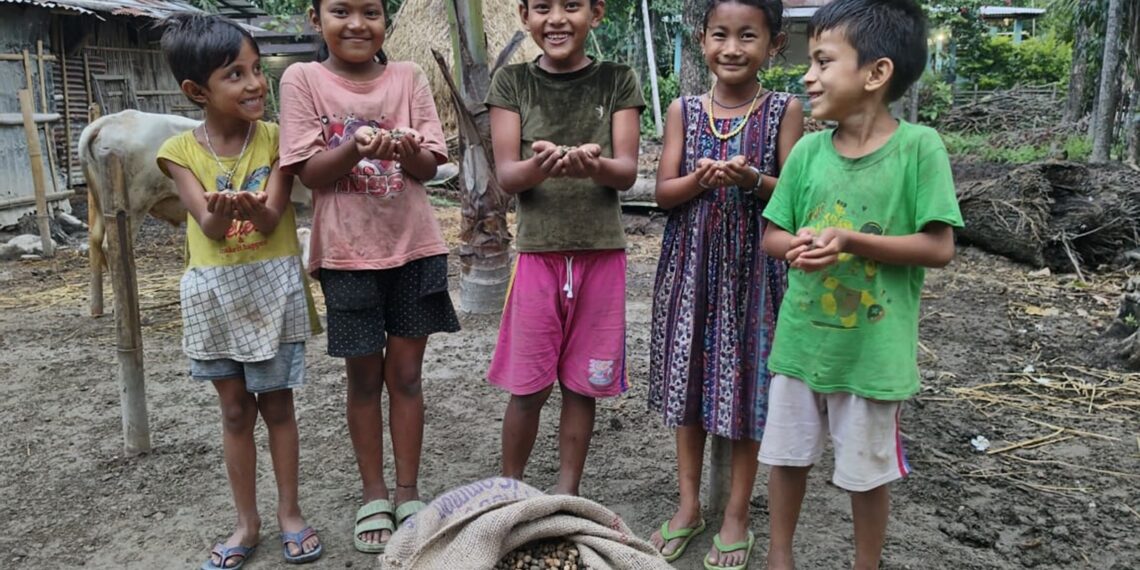Guwahati: In a bid to mitigate human-elephant conflict (HEC) and restore natural habitats, biodiversity conservation organisation Aaranyak, with support from the SBI Foundation (SBIF) and in collaboration with the Dhansiri Sikaridanga Joint Forest Management Committee (JFMC), has launched an initiative in Assam’s Udalguri district.
This project focuses on replenishing the habitat for wild elephants, an area heavily impacted by the ongoing conflict between humans and elephants.
As part of the restoration effort, Aaranyak and the Dhansiri Sikaridanga JFMC have established a co-managed nursery spread over 0.89 hectares.
The nursery is dedicated to cultivating native plant species of Assam, aiming to revitalize the ecosystem and enhance habitats for elephants and other local wildlife.
“The nursery has raised 27,55,000 saplings from 17 native plant species in the last two years, which will be planted at the restoration site to improve the habitat. We are also exploring the introduction of more native species to further boost our efforts,” said Dr. Alolika Sinha, Senior Manager and Conservation Biologist at Aaranyak’s Elephant Research and Conservation Division (ERCD).
The project is community-driven, with seeds for the nursery primarily sourced through local involvement, including contributions from schoolchildren and nearby villagers.
Aaranyak’s conservationist Rabiya Daimari highlighted that the initiative actively engages the local community, ensuring their participation in the restoration process.
The nursery not only focuses on raising saplings but also provides employment opportunities for marginalized farmers and landless households from surrounding villages.
Around 20 households participate seasonally during peak operation periods, with four households involved year-round in nursery maintenance.
ALSO READ: Nagaland government halts transfer, posting of 1,650 teachers amid opposition
A dedicated management team from the local community has been trained to oversee day-to-day operations, ensuring sustainable practices and proper plant care.
Additionally, the nursery serves as an educational platform, offering experiential learning on environmental conservation for students from various schools and colleges.
It also emphasises the importance of native tree species to both wildlife and human well-being.
The initiative has received strong support from local communities, fostering a sense of ownership and commitment to environmental conservation.
By enhancing elephant habitats and providing economic opportunities to locals, this project not only aims to protect wildlife but also promotes sustainable livelihoods, setting a benchmark for community-based conservation efforts.















